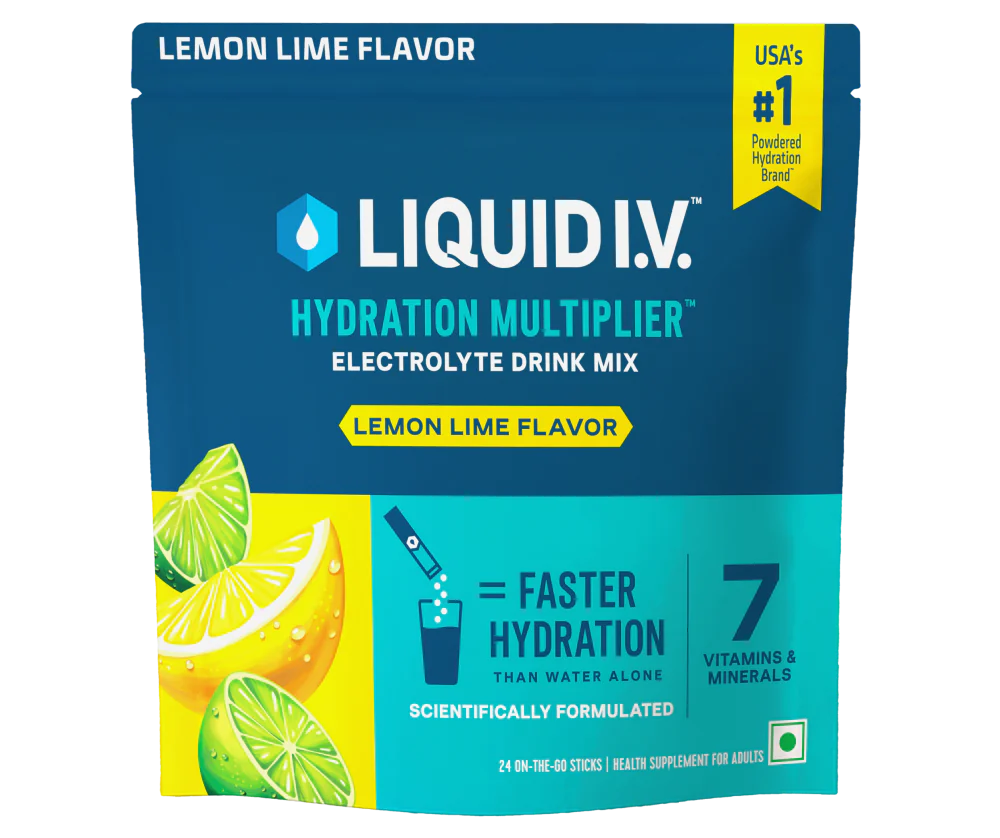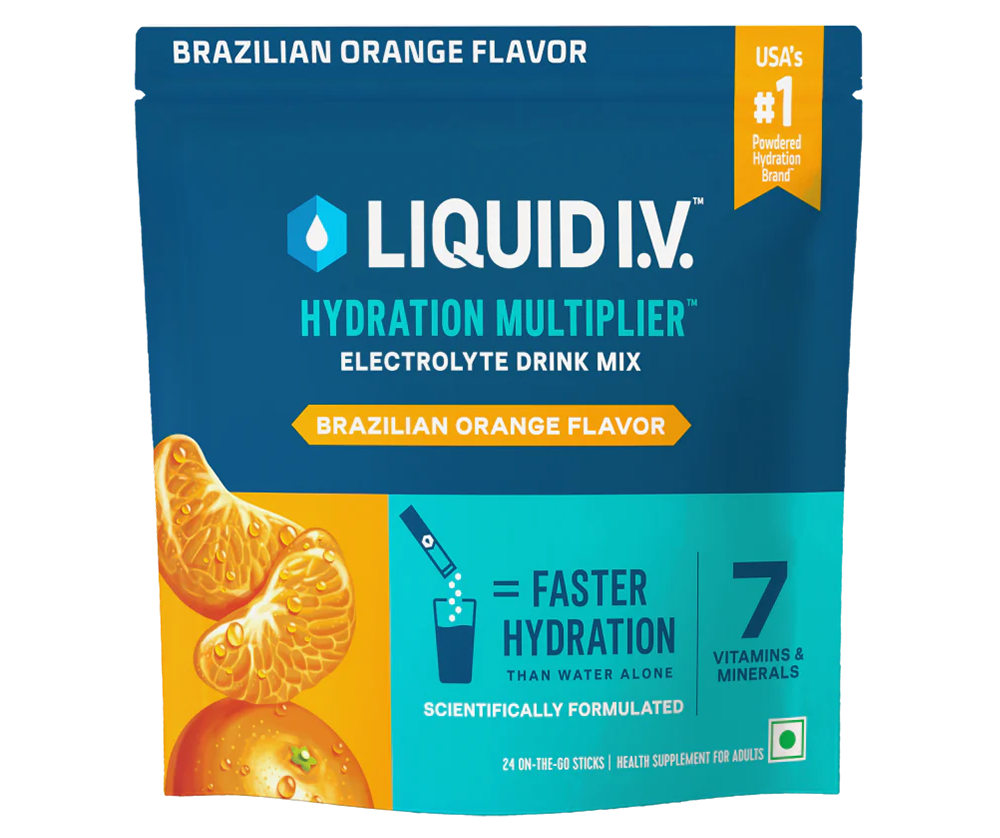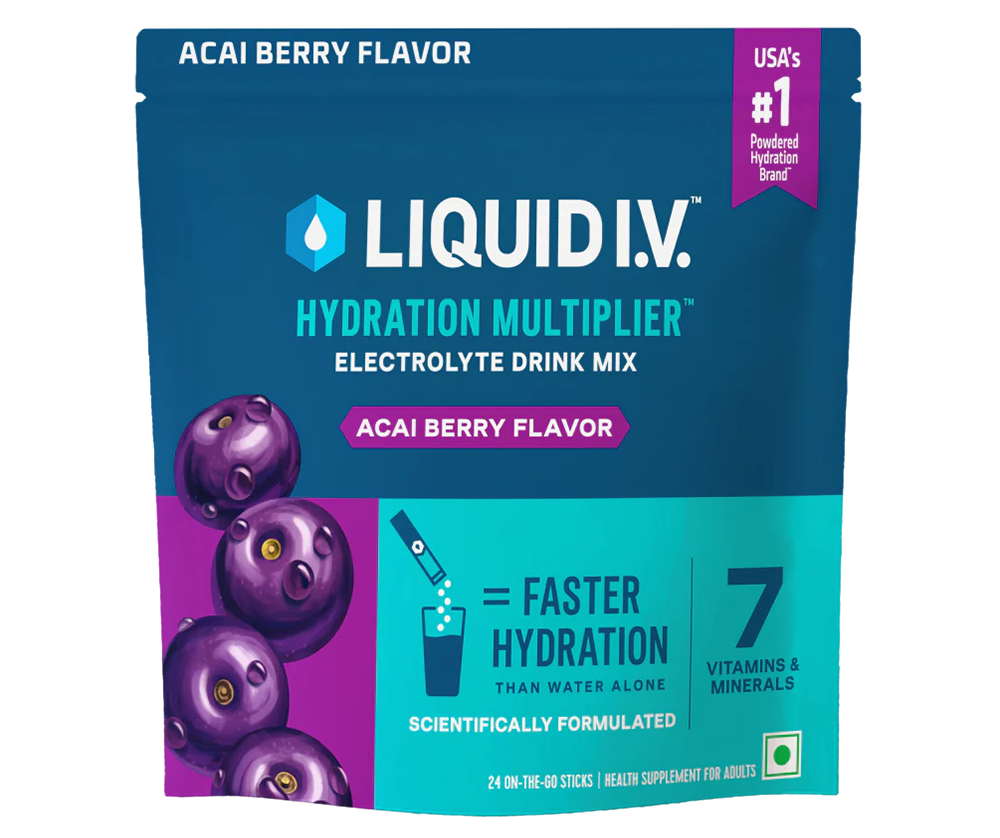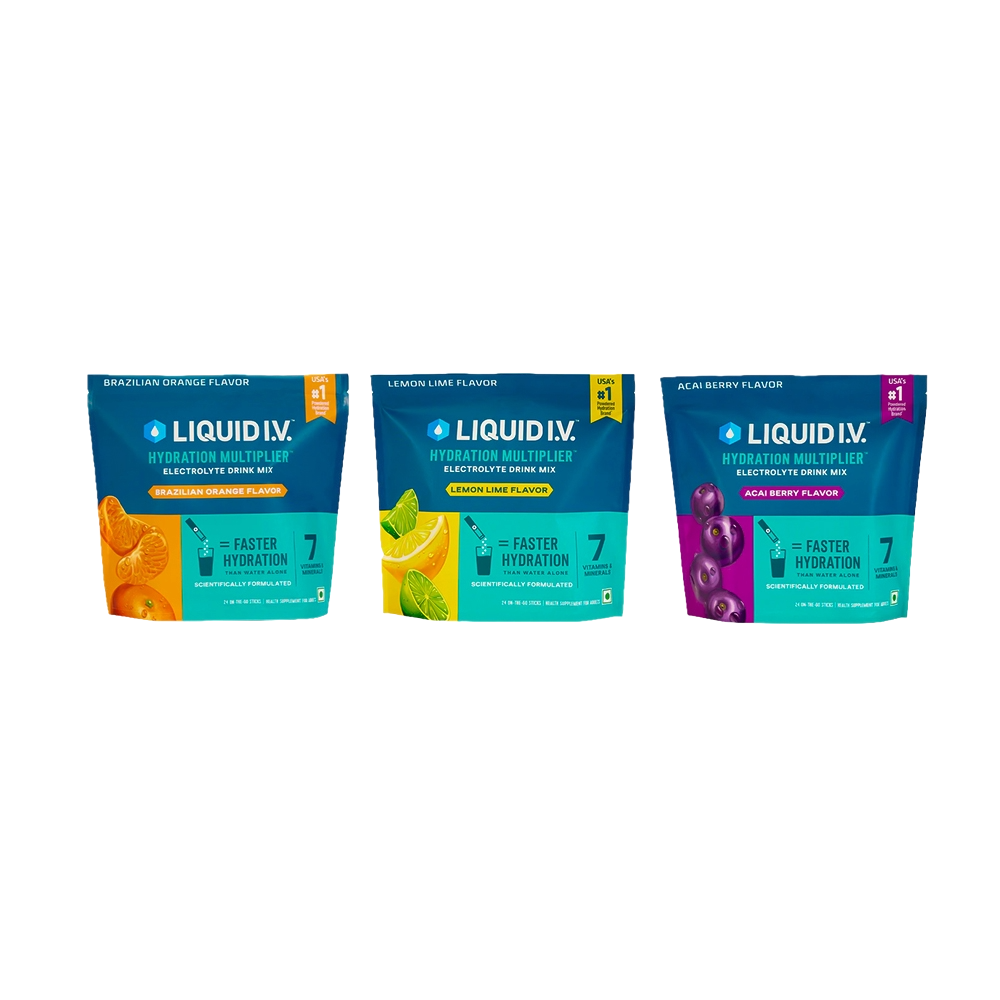Caffeine: How much is too much?
Caffeine is basically the OG energy booster that everyone’s hooked on - from the morning coffee grind to that mid-day fix. It’s not just a vibe, it’s science that makes your cognitive function alert and you feel way more awake and focused. For most of us, that daily dose is a go-to ritual- kind of like a productivity cheat code that boosts your mood and helps you crush your to-do list. But heads up: there’s a limit. Too much caffeine and your body start throwing red flags—think jitters, anxiety, messed-up sleep. Keep reading to know more.
Daily Caffeine Consumption for Most Adults
For most healthy adults, caffeine isn’t the enemy- it can actually be helpful when you don’t overdo it. The general rule? Stick to around 200 mg per serving, max 400 mg a day from stuff like coffee, tea, or caffeine loaded energy drinks. (1)
To make that less math-y: one regular 8 oz coffee hits around 100 mg of caffeine, but it depends on how strong you brew it and what beans you’re using. Black tea has about too has fair amount of caffeine per cup.(1) But beware of energy drinks - some of them are packing caffeine like they’re trying to launch you into orbit. Read those labels like your life depends on it (okay, not literally- but kinda).
Here’s the catch: everyone handles caffeine differently. Your genes, body weight, and health all mess with how much you can take without your body going “nah.” So, what’s fine for your friend might hit you way harder.
Basically: sip smart, know your limit.
Side Effects of Going Overboard on Caffeine
Caffeine can be the ultimate sidekick when you're dragging but abuse it and it turns full-on villain. Here’s how it can mess with your vibe:
- Anxiety: Too much caffeine is like giving your nervous system a megaphone. Your heart races, and your body starts pumping out stress hormones. Suddenly, your energy boost feels more like an anxiety spiral. (1)
- Insomnia or disturbed sleep: Caffeine tells your brain it’s time to gear up instead of the usual slowing down that you need at night. Sip that latte too late and you might still technically sleep, but it’s low-quality, shallow sleep that leaves you waking up feeling like a zombie. Cue the next-day coffee run, and the cycle repeats.
- Dehydration: While you consume water along with your cold brew, caffeine makes you pee more. Add a hot sweaty day to this and very soon you will start to feel dehydrated. (2)
- Digestive Issues: Caffeine gets your digestive system moving- sometimes too much. Your gut sometimes does not vibe with your caffeine choices. (1,3)
- Addiction: Caffeine isn’t harmless just because it’s common. Drink it regularly in high amounts, and your body gets attached. Stop suddenly, and bam - headaches, mood swings, irritability, brain fog. Not fun.
- Fatigue: Here’s the plot twist: caffeine can actually make you feel more tired in the long run. Poor sleep from late-day caffeine + energy crashes = even more caffeine the next day. Add the dehydration to this and suddenly you’re on this never-ending roller coaster. That’s anything but refreshing.
- Bottom line: Caffeine can definitely be your productivity bestie, if you treat it with respect. Use it smart, not on autopilot. Your brain (and stomach and heart and sleep) will thank you.
Smart Sips: Why Caffeine Moderation Matters
Caffeine’s cool and all, but it needs boundaries. The secret? Stay mindful and sip with purpose. Everyone’s wired differently - some folks get shaky after half a cup, while others can chug three cold brews and still nap. So, it’s super important to know your tolerance and actually listen when your body is throwing signals. Timing matters, too. Drinking coffee late in the day? That’s just asking to fight your pillow at midnight. Try keeping your caffeine fix to the earlier half of the day so you’re not wrecking your sleep later. If you’re just into the cozy vibes of a hot drink, switch it up with decaf or herbal tea.
Hydration and a balanced diet also play a big role. If you’re downing coffee but ignoring water and skipping meals, your body’s not gonna thank you.
Bottom line: caffeine is a great tool when you use it wisely as fuel - not to patch over bad sleep and burnout. Stay smart, stay sharp, and let caffeine boost your life- not run it.
Conclusion
Caffeine is the glow-up we all love - whether it’s coffee or an energy drink. It helps boost your wellbeing when used right. But the line between “boosted” and “wired out of your mind” is super easy to cross. The trick? Learn your limits and sip with intention. Pay attention to how your body reacts. Swapping in some decaf can help. Pair that with hydration and decent sleep, and caffeine stays your BFF instead of turning into the drama.
Stay smart, stay balanced, and let caffeine work for you.
FAQs
-
Is drinking 200mg of caffeine a lot?
For most healthy adults, 200mg of caffeine is generally considered a moderate amount and falls well within the recommended daily limit of 400mg. However, individual sensitivity varies. It's important to consider your personal tolerance and how your body reacts to it. -
How much caffeine is OK at once ?
Experts recommend not more than 200mg of caffeine in one serving. Rapid consumption of high doses is recommended. -
Is caffeine healthy?
In moderation, caffeine can offer several health benefits. It can improve cognitive function. Excessive consumption can disturb sleep and can cause dehydration. -
Is caffeine bad for the skin?
Excess caffeine intake can cause dehydration which can make skin appear dull and less supple, especially if signs of dehydration set in.





